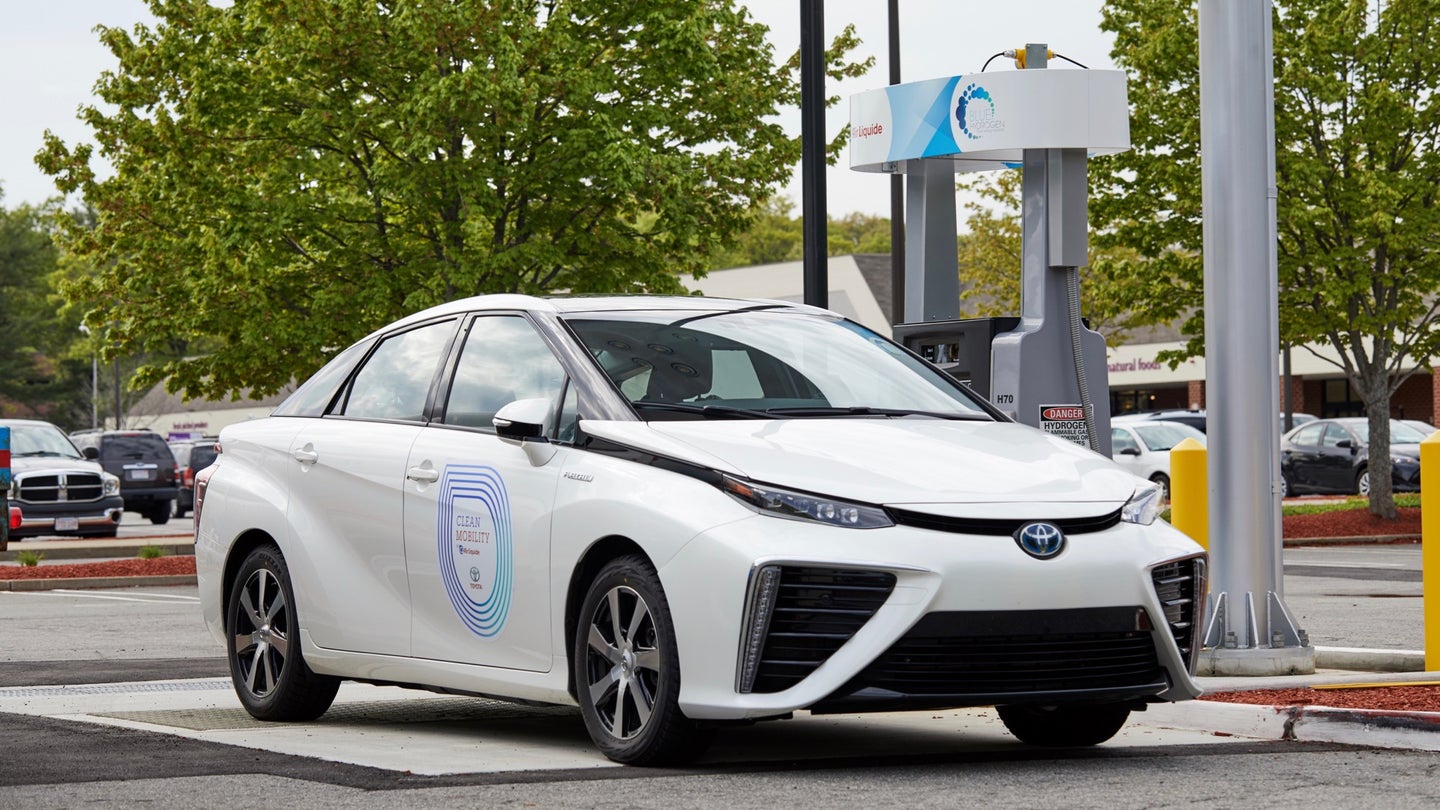Hydrogen Fueling Stations are Being Built in New York and New England
Infrastructure for hydrogen fuel-cell cars is slowly expanding outside of California.

The network of United States hydrogen fueling stations is small and largely limited to California, but French firm Air Liquide hopes to change that. The industrial gas company has completed four new stations, each in a different Northeastern state. Will that lay the groundwork for future hydrogen fuel-cell vehicle sales in this part of the country?
The new stations are located in Hempstead, New York; Providence, Rhode Island; Mansfield, Massachusetts; and Hartford, Connecticut. Air Liquide is following up on a 2014 announcement that it would build a Northeast hydrogen-fueling network consisting of two filling and distribution centers as well as 12 fueling stations. This is the first significant attempt to build up hydrogen infrastructure outside California.
Speaking of California, Air Liquide also recently opened two new stations in the Golden State: one in Palo Alto and another at Los Angeles International Airport (LAX). The company claims to have built more than 100 hydrogen stations globally.
Air Liquide partnered with Toyota on the Northeast hydrogen-infrastructure project. The Japanese automaker currently sells its Mirai fuel-cell sedan in California but hasn't confirmed whether it will offer the car in other states. Lack of fueling stations has kept sales limited to California so far. The same goes for Honda and Hyundai with their Clarity Fuel Cell and Tucson Fuel Cell, respectively.
Like battery-electric cars, hydrogen fuel-cell cars will live or die by the infrastructure that supports them. But it's much easier to build an electric car charging station than a hydrogen station, and it's easier to get electricity too. The same infrastructure that provides power to buildings and streetlights can charge electric cars. However, automakers are still grappling with the challenge of manufacturing and distributing hydrogen on a large scale.
That doesn't mean automakers are completely giving up on hydrogen. Toyota plans to massively increase production of fuel-cell cars, and it's testing a fuel-cell semi-truck in California. Hyundai is about to replace the aged Tucson Fuel Cell with a new crossover called the Nexo and wants to deploy 1,000 fuel-cell trucks in Switzerland. But Toyota and Hyundai, along with most of their competitors, are also investing in battery-electric cars, making hydrogen's future uncertain.
